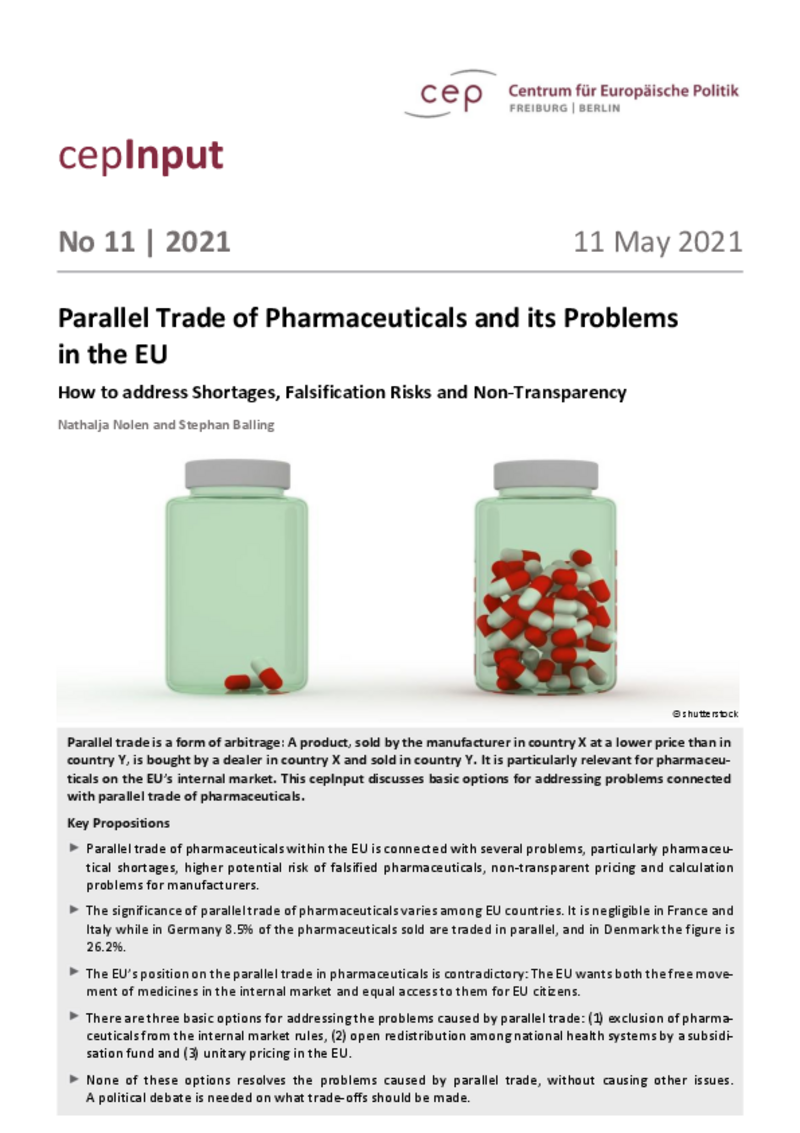
cepInput
Consumer & Health
Parallel Trade of Pharmaceuticals and its Problems in the EU (cepInput)
cepInput
"Parallel trade leads to drug shortages, non-transparent pricing and calculation problems for traders. It also increases the risk of falsified medicines and thus poses health risks," warns cep health expert Nathalja Nolen, who wrote the study with cep economist Stephan Balling for the Freiburg-based think tank.
The cep scientists consider the EU position contradictory and attest that Brussels has a conflict of goals. On the one hand, the EU wants to promote the free movement of medicines in the internal market, on the other hand, it wants to give all EU citizens equal access to medicines.
For this reason, the cep discusses three theoretical options:
- exclusion of medicines from the rules of the EU internal market
- open redistribution between national health systems through a subsidisation fund
- uniform EU pricing
Download PDF
| Parallel Trade of Pharmaceuticals and its Problems in the EU (cepInput) (publ. 05.11.2021) | 311 KB | Download | |
 | |||


